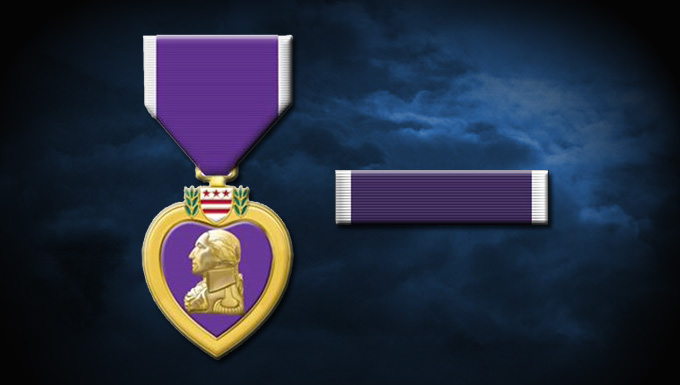Airmen and other service members who sustained traumatic brain injuries in the January missile attack on al-Asad Air Base, Iraq, are expected to receive Purple Hearts in the near future.
More than 100 service members reportedly sustained the brain injuries as Iranian missiles rained down on the base on Jan. 8, a move Tehran said was in response to the U.S. killing of Quds Force Commander Qassem Soleimani in a drone strike.
“The Purple Heart submissions remain under review and are being processed in accordance with Defense Department and Military Service regulations,” Pentagon spokeswoman Jessica Maxwell said. “Upon completion, Service members entitled to receive the Purple Heart will be notified by their leadership.”
CNN reported the awards are in the “final stage” of review by Combined Joint Task Force-Operation Inherent Resolve, with a final decision to be made at the Pentagon. No details are available on the number of troops who could receive the award.
Service members who suffer traumatic brain injuries in combat have long been eligible to receive the Purple Heart, and the Pentagon in 2011 updated the criteria to state that the injury must have been caused by enemy action or in action against an enemy, and had to require treatment by a medical officer or certification that it would have required treatment if available.
No U.S. or Iraqi forces were killed in the attack, though aircraft, vehicles, buildings, and other equipment were destroyed. This month, the Air Force published vivid recollections of the attack by Airmen stationed at the base, who described the area shaking “with a force impossible to put into words” as missiles struck the base.
“I was being forced to gamble with my members’ lives by something I couldn’t control,” said Lt. Col. Staci Coleman, commander of the 443rd Air Expeditionary Squadron that runs the base. “I was deciding who would live and who would die. I honestly thought anyone remaining behind would perish. I didn’t believe anyone would survive a ballistic missile attack, and it made me feel sick and helpless.”
“The sky lit up and we felt the shock wave as debris from the explosion pummeled our shelters,” an anonymous Security Forces member said. “My ears wouldn’t stop ringing. The next four hours became a blurred mix of emotions and chaos. Bomb after bomb shook us for what felt like all night.”
